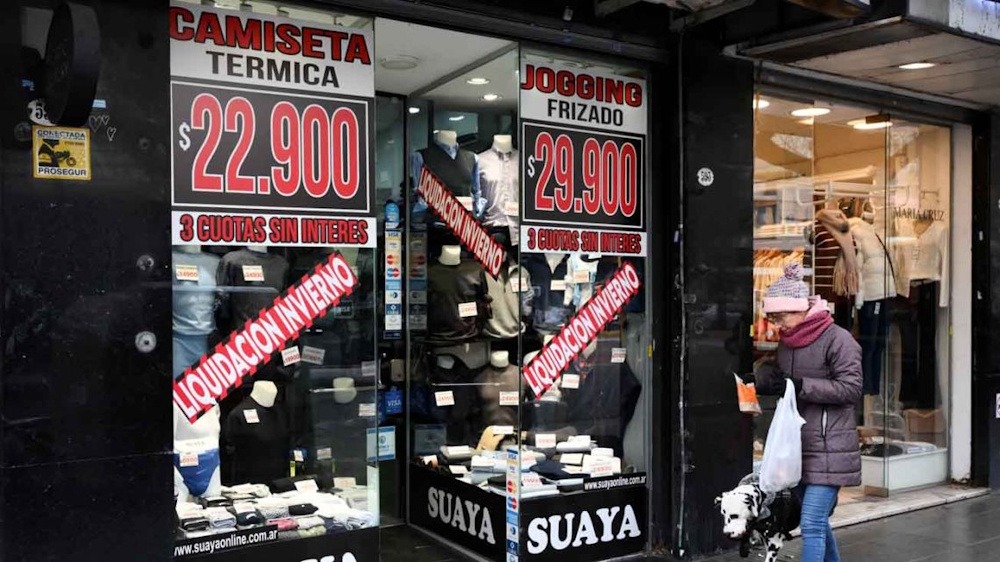The Argentine Chamber of Medium-sized Enterprises reported 2% retail sales decline and flat consumption due to declines in most sectors and lower margins. In July, small and medium-sized retail sales experienced a decline of 2% compared to the same month in the previous year, as reported by the Argentine Confederation of Medium-Sized Enterprises (CAME). In comparison to June, the decrease was notably more pronounced, reflecting a 5.7% reduction. In the year 2025, the sector has demonstrated a year-over-year growth rate of 7.6%, reflecting an enhancement relative to the corresponding timeframe in 2024. The latest data indicates a concerning trend: sales have been on a decline since February.
In terms of the economic conditions faced by businesses, 57.9% reported that their situations remained unchanged compared to the previous year, whereas 30% indicated a deterioration, reflecting a 2.5% increase from the previous month. Conversely, 49.2% of the surveyed businesses anticipate an improvement in their economic circumstances in the coming year. The proportion of individuals anticipating a deterioration has risen compared to the prior month, now standing at 10.1%.
A detailed examination of each sector reveals that merely three out of the seven sectors included in the survey experienced positive year-over-year changes. “Perfume” was the primary driver of growth at 1.8%, with “Pharmacy” contributing 0.9% and “Food and Beverage” adding 0.4%. Conversely, four sectors experienced declines. “Bazaar, decoration, home textiles, and furniture” experienced the most significant contraction, decreasing by 6.7%. This was followed by “Textiles and clothing” with a decline of 5.1%, “Footwear and leather goods” at -2.5%, and “Hardware, electrical, and construction materials” which fell by 1.9%.

In July, sales experienced a decline due to various economic factors that constrained consumption, including household debt, limited access to credit, and increasing operating costs. Retailers have consequently turned to strategies such as promotions, interest-free installments, and discounts, while some have also integrated services like home delivery or online sales. Expenditures are concentrated on essential goods and low-cost items, accompanied by rigorous budgeting strategies.
CAME’s press secretary Salvador Femenía expressed concerns regarding consumption metrics, stating in an interview with Radio Rivadavia that “it is not picking up” and is “very flat and complicated.” He also noted that profitability remains quite low for retailers, emphasizing that they are “finding it very hard to compensate fixed costs.” In this context, the CAME official indicated that there has been a decline in sales following a modest recovery towards the conclusion of 2024 and the initial quarter of the current year. “We have observed a decline relative to May of the previous year, which had already experienced a decrease exceeding 7%.” It represents a decline superimposed on a prior decline. “It’s very flat and complicated,” he said.
“The tax burden remains the same, but with smaller margins,” he added. Femenía also highlighted that the circumstances are deteriorating as consumers are experiencing a decline in their financial resources. “Today, 50% of people can’t make ends meet, and that’s what’s at the root of it all.” “Offering installments or discounts isn’t enough if there’s no money in their pockets,” he concluded.

